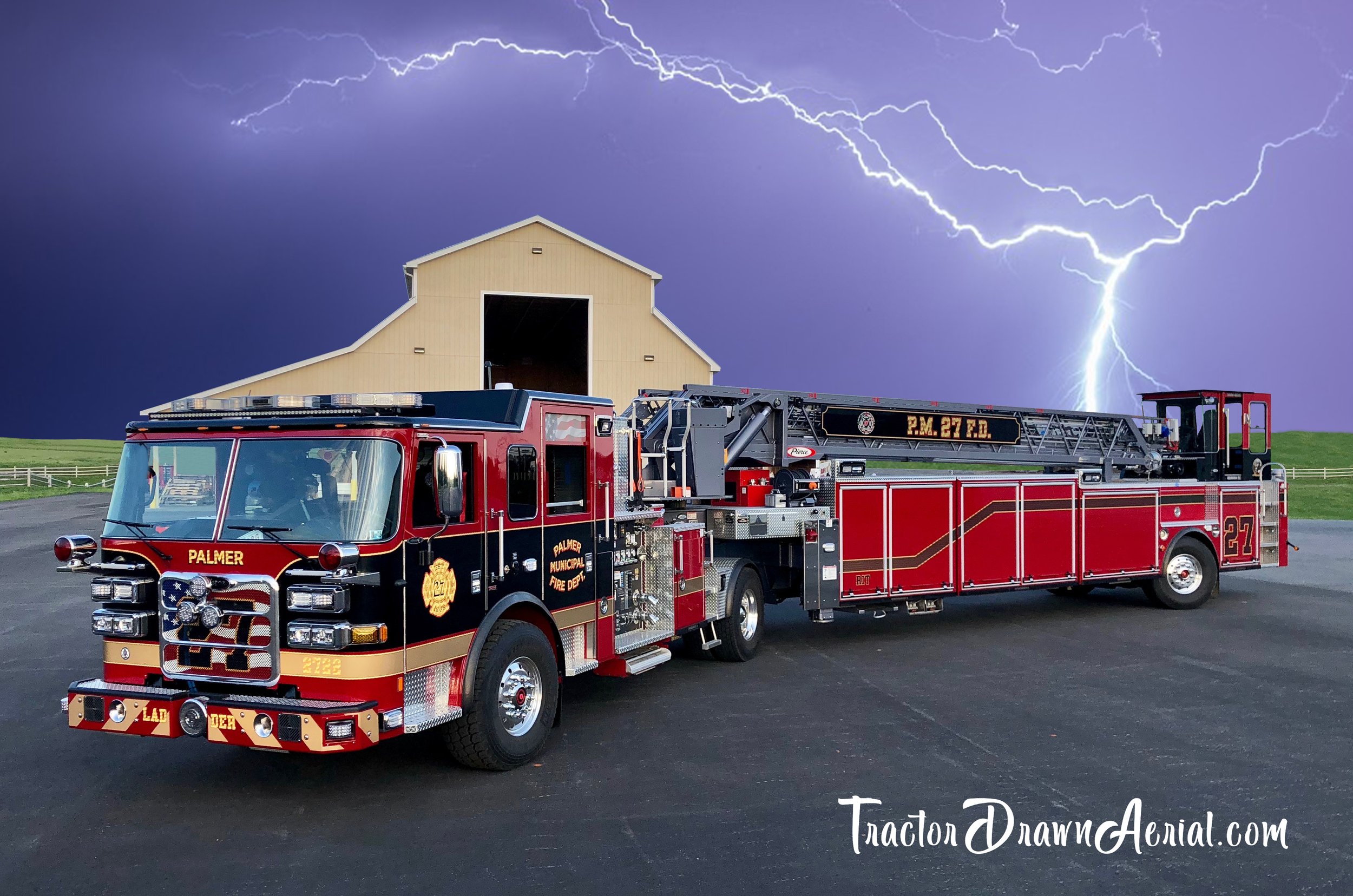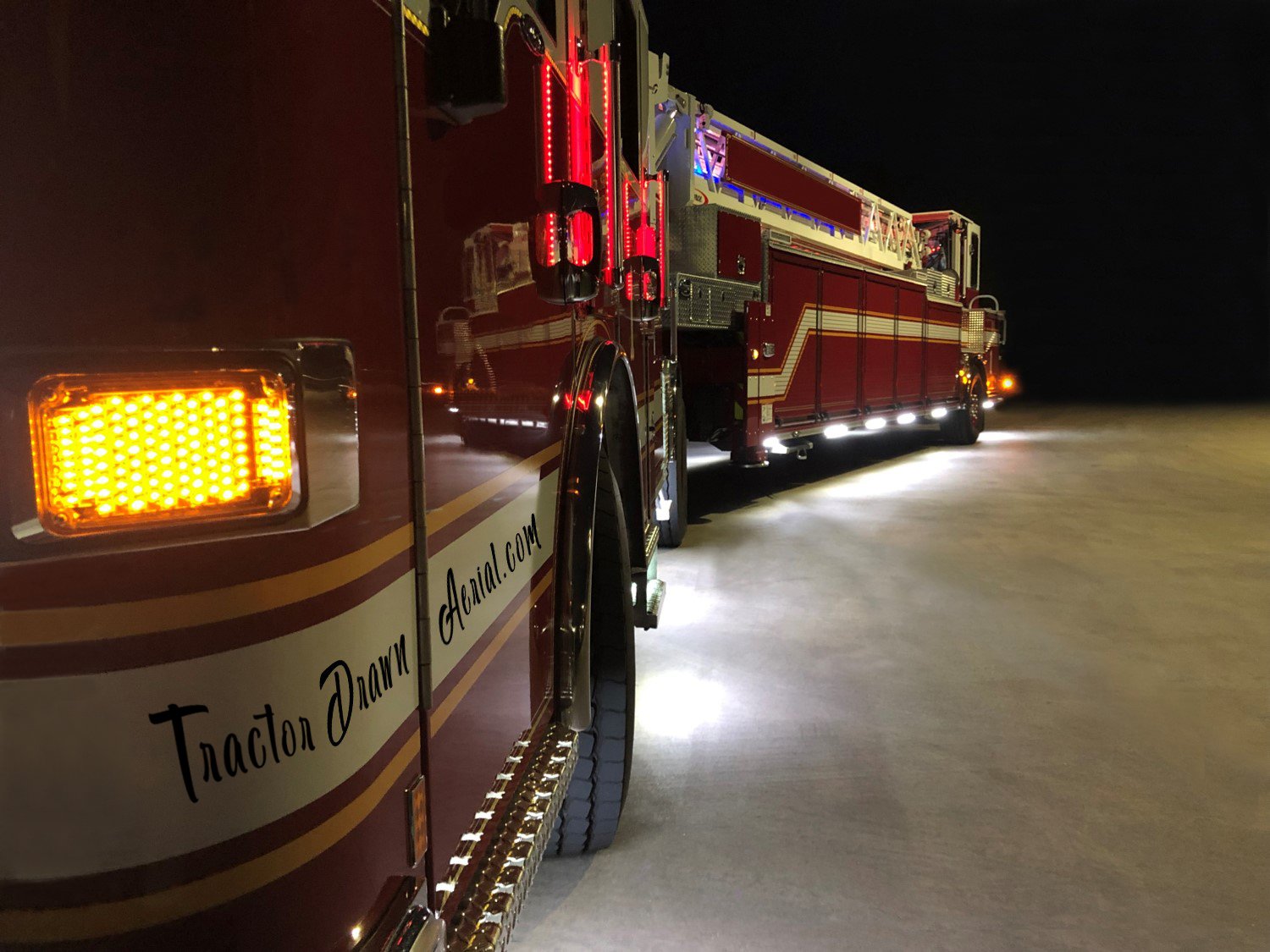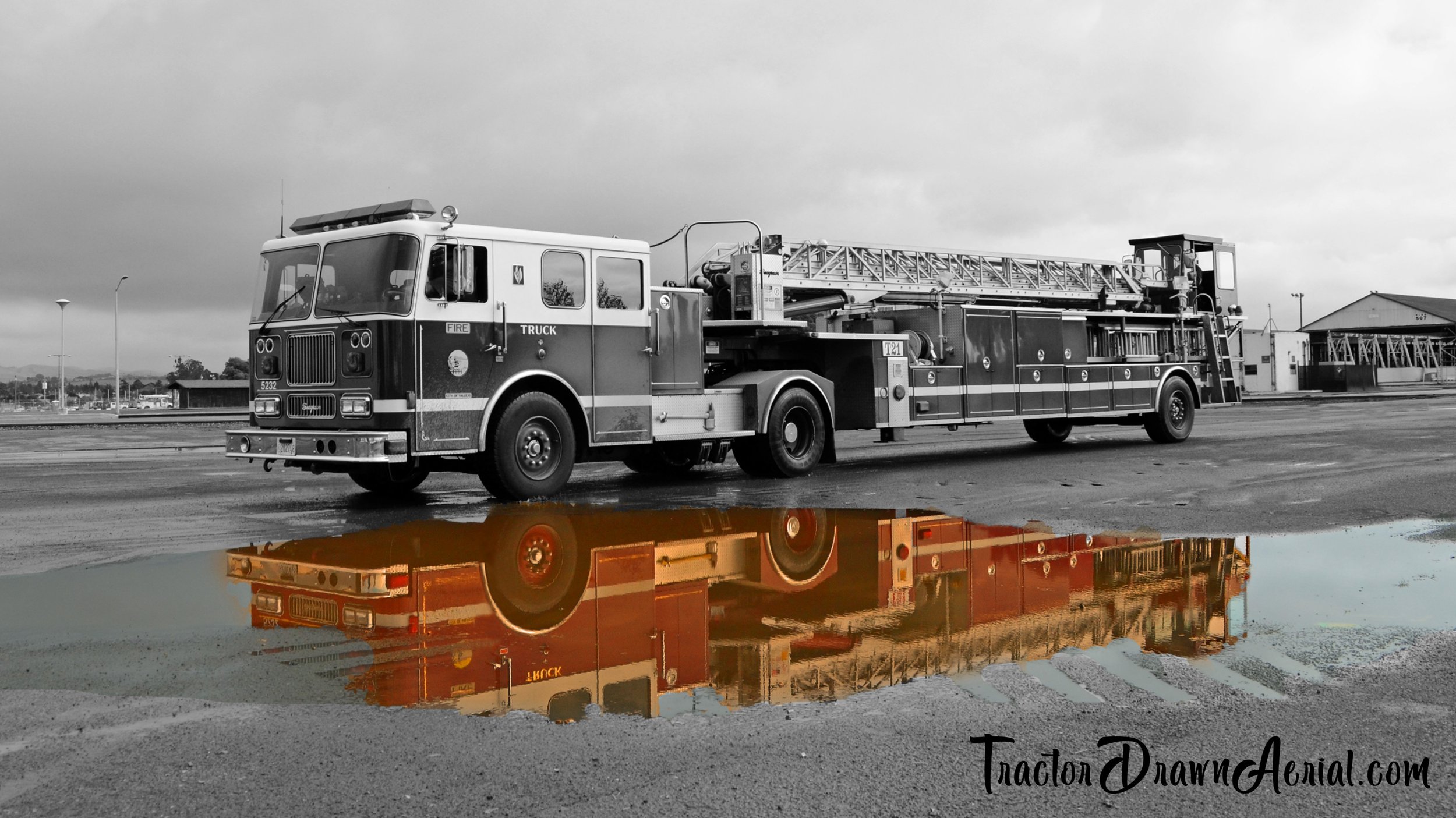Raleigh Safety video
Fire Apparatus Rollover Accident Leads to Cooperative Safety Video Between Raleigh (NC) and Seattle (WA) Fire Department.
On July 10, 2009, the Raleigh (NC) Fire Department’s tractor drawn aerial (TDA) was involved in an accident while responding. The apparatus overturned while negotiating a corner during the response. Three of the members received non-life threatening injuries; the apparatus was a total loss. The accident itself was a significant incident; but what made it even more dramatic was the fact it was captured on video from two different camera angles. (Click to pay video)
During this same time frame, we in the Seattle (WA) Fire Department were in the process of modifying our TDA training program. Seeing the importance of these powerful videos as an invaluable training resource, we made the decision to incorporate them into our training program. We contacted the Raleigh Fire Department to learn more about the accident and to verify facts. A dialog was started between our departments, and during the next year we had many conversations about concepts, techniques, and the driving dynamics of a TDA. Their willingness to talk openly about the accident set the foundation for the cooperative effort that was to develop between our departments. The accident prompted their department to explore outside training curriculums and what they had to offer. A partnership was soon formed and we were invited to the city of Raleigh to share our updated training program. Seeing a unique opportunity to create a safety video, we requested to interview the four members who were involved in the accident in hopes of preventing this type of accident from occurring in the future.
While sharing our classroom presentation and rodeo course with Raleigh, it became obvious that both departments were going to learn from the experience. The tractor drawn aerial is an extremely unique piece of equipment that requires formal instruction; on-the-job training should be the way of the past. Universal terminology, techniques, and driving rodeos need to be part of the learning process.
Prior to the interviews, all four members of Ladder 4 were given the topics we hoped they would discuss. During the interviews the members were asked to talk about the day of the accident and tell their story. We were impressed with their honesty, openness, and professionalism during the interviews.
Although this dramatic accident involves a tractor drawn aerial, it was our goal in producing this video that the content would have a positive, lasting effect on all who drive emergency vehicles of any type. As professional fire service drivers, it is important to look at the dynamics of this accident and apply the learning principles to our own driving habits and behavior.
Even though we are thousands of miles apart we are encouraged by the partnership our departments have formed, not only have we learned about driving TDAs, but that we shared many of the same concerns and constraints. We look forward to a continued relationship and hope the future leads to new cooperative efforts and friendships. We are indebted to the Raleigh Fire Department and the members of Ladder 4 for their open and transparent participation in this collaborative effort. Their ability to share this extraordinary story clearly demonstrates their department’s leadership, dedication, and commitment to safety for the brothers and sisters of the fire service. Without them, this impactful and sincere training video would not have been possible.













